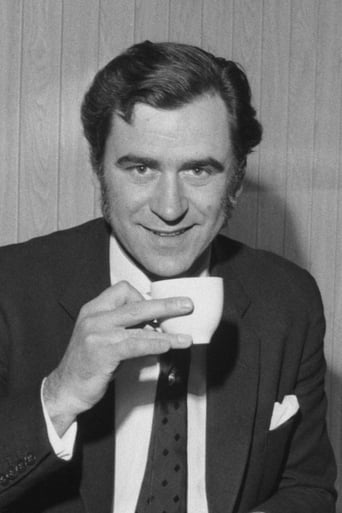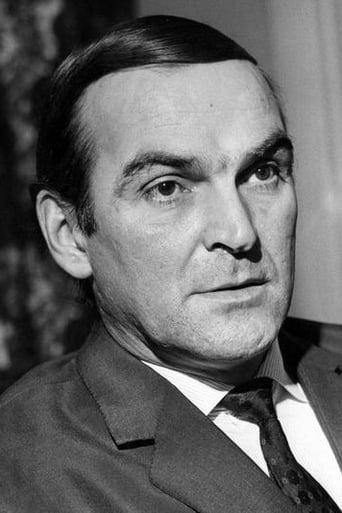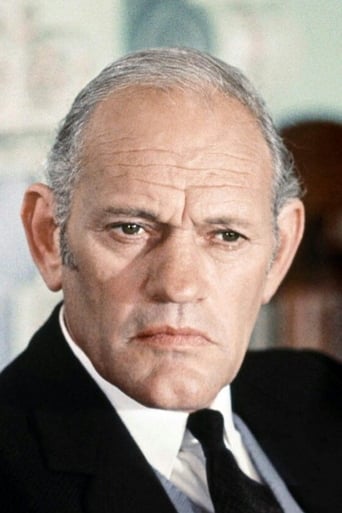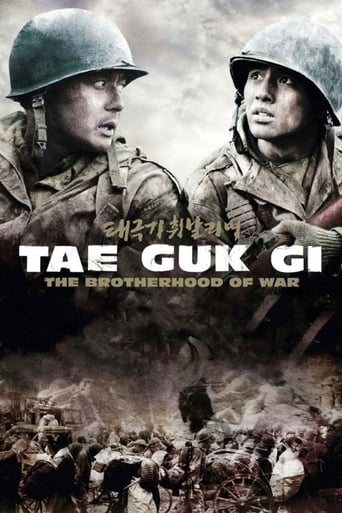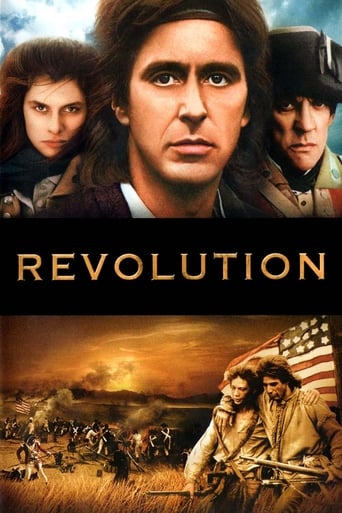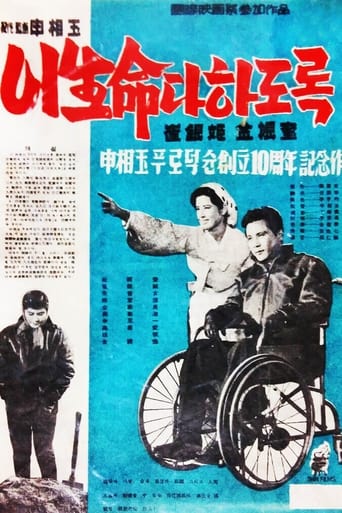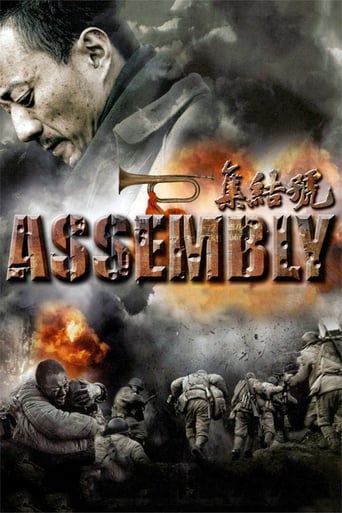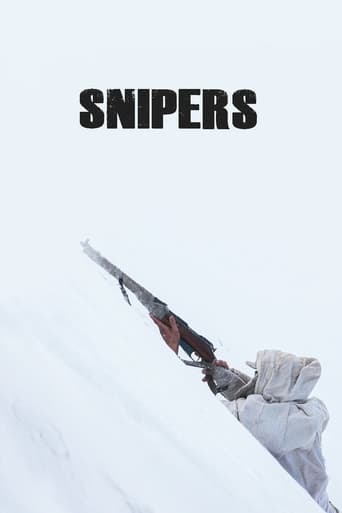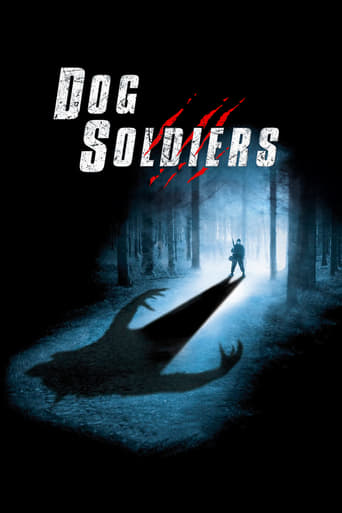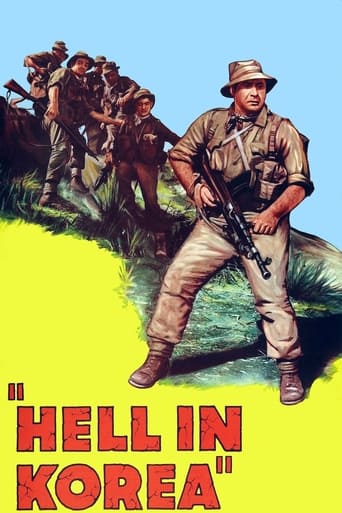

A Hill in Korea (1956)
Based on real events, A Hill in Korea charts the fortunes of a small group of British soldiers serving in the Korean War. Out on a routine patrol, the soldiers find that Chinese troop movements have cut them off from their own lines. They try to fight their way back to safety but with the enemy surrounding them on all sides, the prospects look bleak. Facing almost insurmountable odds, they decide to stand a fight.
Watch Trailer
Cast
Similar titles
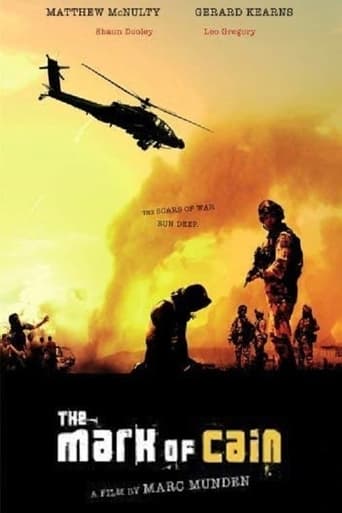
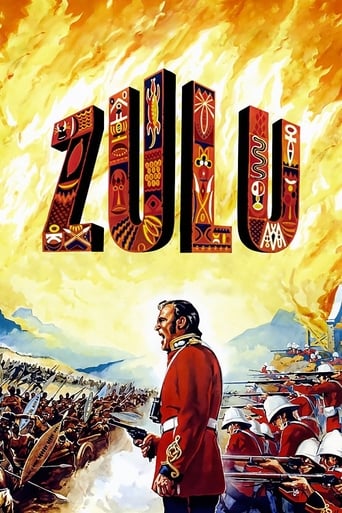
Reviews
Pretty Good
People are voting emotionally.
If the ambition is to provide two hours of instantly forgettable, popcorn-munching escapism, it succeeds.
The movie's neither hopeful in contrived ways, nor hopeless in different contrived ways. Somehow it manages to be wonderful
It's a small film but great in its making. The overwhelming credit of it is its absolutely perfect almost naturalistic realism, filmed in Korea and taking part of all the hardships of the soldiers at very close quarters. You get to know each of the soldiers individually, and MANY of them make unforgettable impressions. More of a curiosity is the presence of a very young Michael Caine among them as the youngest and the only blond one. He isn't noticed much and isn't seen much, but he is actually in it; while also Robert Shaw makes a very early and very palpable presence. The main characters though are Harry Andrews as stalwart and dominating in his imposing stature as ever, and Stanley Baker as the toughest and hardest of them. You don't like him, but in the end you must wonder if he wasn't right after all, while of course there is also the martyr, all lost and making his situation constantly more awkward in succeeding in doing everything wrong. The settings are also quite impressing with the Buddhist monastery as a refuge, like a Korean Alamo for a last stand, but here there are actually some survivors; while the greatest quality of the film is the indivdual close-up attention given to everyone of these forgotten heros.
So says Harry Landis in a wonderful moment.Well it would have been more exciting than the moribund match against Norwich yesterday.Anyway so far as I am aware this is one of only two British films about the Korean conflict,the only other being the Yangtze Incident.It has about all the ingredients that you would expect from a film about a unit surrounded and out of contact with its base.So we have the cheerful comments,the hard man,the coward who dies to redeem himself,the experienced sergeant and the inexperienced commanding officer.They are talking about 60000 watching Arsenal play Chelsea at Highbury.Anyway while there are no real surprises it is well made and fairly entertaining.The beginning of Michael Gaines very long film career.
Director Julian Amyes' movie "A Hill in Korea" is a low-budget British combat epic about a patrol of English Army soldiers on a reconnaissance mission in 1951. Nothing about it is light-hearted and happy-go-luck. Nobody serves as comic relief. Everything is appropriately grim and gritty as these Brits find themselves outnumbered and out gunned by the enemy. Things don't look too bad for them at the outset. They repulse several front assault charges, but eventually the fighting takes its toll and the men begin to disintegrate. At one point, they have to contend with an enemy tank and successfully knock it out of action with a bazooka. The patrol consists primarily of white Britons. One turns psychotic, while another behaves like a coward and sabotages their wireless. Gradually, they begin to die one by one, but at no point does the film indulge in heroics. Aside from being the first British film about their troops in Korea, this war movie isn't extremely memorable. Nevertheless, the cast is first-rate. Look for future British stars and sturdy character actors, among them Michael Caine in his film debut, Robert Shaw, Stanley Baker, Stephen Boyd, Robert Brown, George Baker, Percy Herbert, and Harry Andrews. After our heroes retreat from a village that the North Korean put to the torch, they take refuge in a Buddhist temple atop a hill and fight it out with the enemy. Scenarists Ian Dalrymple and Anthony Squire derived their screenplay from Max Catto's novel. You can tell that this isn't one of those war is a glorious enterprise movies when U.S. pilots show up like the cavalry and then accidentally bomb the Brits. The action covers three days and two nights. The minor but interesting film virtually recycles Malcolm Arnold's orchestral score from "Bridge on the River Kwai." Future James Bond director Peter Hunt of "On Her Majesty's Secret Service" edited this black & white 81-minute saga. Harry Andrews and Michael Caine would later work together again in "Too Late The Hero" and "The Battle of Britain." Robert Brown would later replace Bernard Lee in the James Bond franchise as 007's boss M. Stephen Boyd would win an Academy Award for "Ben-Hur." Robert Shaw would appear in "Jaws" and "The Sting" at the height of his career after trying to kill 007 in "From Russia with Love." For the record, not only did Michael Caine serve in the Korean War, he also provided technical advice for the filmmakers.
It's 1951, and the Allies are on the retreat from the Yalu, with massive Chinese forces pursuing them south. A small unit of British troops is sent to reconnoitre a Korean village, and gets caught by two advancing Chinese battalions.For all the formulaic treatment of soldiers maintaining a chirpy stoicism in adverse combat conditions, this film does have a certain gritty realism. George Baker as the rookie lieutenant burdened by command, and Harry Andrews as the tough old sergeant, are first-class. Don't blink, or you'll miss a very young Michael Caine as Private Lockyer, lamenting the death of Corporal Ryker (Stanley Baker).The film works as a simple narrative of men under fire, but it certainly has some shortcomings. The narration which launches events may save the time and effort of explaining the plot, but would it not have been better for this information to emerge naturally out of the drama? When the hut explodes, there is a very obvious jump-cut. During the interval needed to get the actor out of the danger area, someone jolted the camera! Would the Chinese soldiers, even with their advantage in limitless canon-fodder, attack so recklessly across open, flat ground? At one point, close-ups are inserted to enhance the human reactions of the soldiers, but the trouble is, the lighting conditions do not match those of the master shot. Once the British soldiers retreat to the temple on the hill, the whole proceedings become totally studio-bound, with Shepperton fibreglass passing for buddhist architecture. The air strike relies too heavily on monotonously-repeated library footage of American planes. When the ending comes, it is a surprise in the wrong sense - the resolution is unconvincing, almost as if the film-makers didn't know how to extricate the soldiers. Surely a few bombs wouldn't clear the Chinese away for miles around?Ronald Lewis plays Wyatt, the misfit who didn't want to be a soldier and who gets everything wrong. This character is needed in one sense, because there has to be some internal tension within the British camp, but Wyatt is not well done. His apostasy is overly-dramatic, and his immolation utterly unbelievable. This attempt to inject gaudy emotion into a basically stiff-upper-lip story just doesn't come off.Verdict - Interesting 1956 British 'take' on recent war which ultimately succeeds, despite its flaws.
